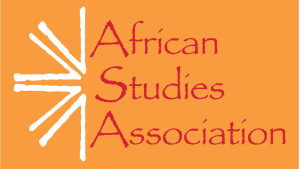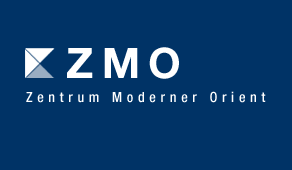2016
This Present Darkness: A History of Nigerian Organised Crime by Stephen Ellis
This Present Darkness analyses how Nigeria acquired its unfortunate reputation as an epicentre of global illicit trade and organised crime.
Celebrated Africanist Stephen Ellis traces the origins of the phenomenon to the last years of colonial rule, when nationalist politicians offered government contracts in return for kickbacks. Political corruption encouraged a wider disrespect for the law that spread throughout Nigerian society. When the country’s oil boom came to an end in the early 1980s, young Nigerian college graduates headed abroad, eager to make money by any means, and Nigerian crime went global at the very moment new criminal markets were emerging all over the world.
Stephen Ellis’ last book is the first to chart this globally significant phenomenon, from drugs, fraud and cyber-crime, to smuggling and people trafficking.
2016
Call for Papers: AAR African Religions Group
Statement of Purpose:
This Group provides a forum for the discussion of research on the multiplicity of religious traditions in Africa, methodological issues in the study of the religions of Africa, and African religious responses to ethical and social issues affecting the continent. The Group encourages the participation of African and non-African scholars in the leadership of the Group and in participation in its programs.
Our Group encourages critical inquiry about religions originating in Africa as well as all those practiced there. Proposals should go beyond description; they should analyze the conceptual tools and methods employed in analysis. The steering committee will evaluate the merit of each proposal based on the clarity of its thesis, the strength of the evidence referenced, and the quality of the conclusions drawn from it, in terms of both style and substance.
We invite individual paper proposals that respond to the following five themes relevant to any region of the African continent (North, West, East, Central, Southern, and the Horn):
• A roundtable to discuss Robert Baum’s recently published book, West Africa’s Women of God: Alinesitoué and the Diola Prophetic Tradition (Indiana University Press, 2015) (co-sponsored by the Indigenous Religions Group, pending co-sponsorship with the African Association for the Study of Religion). In this book, based on detailed historical and ethnographic fieldwork in the Casamance region of Senegal, Baum documents the life of the revolutionary religious leader, Alinesitoué Diatta, whose revelations from the Diola (JOH-lah) Supreme Being, Emitai, left an indelible trace. After Alinesitoué’s emergence, the majority of Diola prophets were henceforth women rather than men. Baum’s study revives memories of a figure of global importance for her resistance to French colonialism, which ended with her imprisonment and near disappearance from history. We will invite specialists in African and indigenous religions as well as proposals for participation from qualified colleagues, to read and engage Baum’s arguments, insights, and methods in assessing his new book.
• Researching Religion in Africa: Methodological Contributions and Challenges to Religious Studies (co-sponsored by the Anthropology of Religion Group): As Africanists we often face different concerns and anchor our work in different communities than our colleagues working in other parts of the world do, but we may also analyze the same “world” religions that our peers do. How do our methods affirm and contest the assumptions of our discipline in ways that make our contributions unique? And what multi-disciplinary approaches are best suited to our work? We seek papers that critique and vindicate various methodological approaches to the study of African religion and ritual, including apprenticeship, biography, ethical inquiry, ethnomusicology, participant-observation, systematic theology, visual ethnography, etc., in order to understand how the study of African religions expands the scope of religious studies as a whole.
• Africa and Everyday Islam: Sustaining Plural Publics through Mysticism, Ritual, and Theology (co-sponsored by the Mysticism Group): In contrast to the extremism evidenced in the recent attack at the Radisson Bleu Hotel in Mali stand most African Muslims whose daily lives balance diverse forces and endeavors, from ancestors, divination, farming, healing, hunting, local rituals, market success, personal advancement, territorial spirits, and so on, all of which require an adaptive and cosmopolitan engagement with the world. We invite papers that explore such pluralistic forms of Islam in contrast to the reformist movements that oppose them and with which media coverage seems preoccupied. We also invite contributors to ask if religious studies has yet developed the proper lens through which to examine this variety of African Islams.
• African Responses to Violence in the Realms of Gender and Sexuality: Action, Ethics, Policy, and Religion (co-sponsored by the Lesbian and Feminist Issues in Religion Group): This panel seeks documentation and reflection on attempts to counter gendered and sexualized violence in Africa in all their forms, including thoughts about their causes and consequences. Over the past three years, the African Religions Group and Lesbian and Feminist Issues in Religion Group have co- and quad-sponsored panels on LGBTIQ Africans and gendered violence in Africa. This year we seek papers that document responses to such offenses, whether they be attempts to end, heal, prosecute, reduce, or testify to the resulting injuries, injustices, or wounds. We also welcome thoughts on how to encourage and enhance such efforts.
• The Good Life and Social Justice in Africa: Ethical and Religious Responses to Exclusion (pending co-sponsorship with the African Association for the Study of Religion): This plenary roundtable will explore various approaches to the Good, as well as tensions among them, that currently prevail on the continent. Against the New Atheists’ assumption that religion is the root of all evil, we pursue ways in which African ethical and religious systems educate pupils, empower persons, enfranchise citizens, enhance health, expand rights, or fulfill other goals even as they question simplistic understandings of what is best in life. We will invite several scholars to address these themes from the point of view of their research. We also welcome proposals for participation from interested colleagues. This roundtable responds to the theme of our 2016 meetings, Revolutionary Love, and to the AAR’s call for plenary sessions over the next three years on the theme of religion and hatred.
• Film Screening: Timbuktu (2014), by Abderrahmane Cissako: This film by a master filmmaker examines the tragic clash of contrasting interpretations of Islam during Mali’s 2012 insurrection. We invite three or four specialists on Mali, the Sahel, and/or West African Islam or related themes to comment on the film following our screening.
Chair
- Adriaan van Klinken, a.vanklinken@leeds.ac.uk
- Mary Nyangweso, wangilam@ecu.edu
Steering Committee
- David Amponsah, amponsah@fas.harvard.edu
- Devaka Premawardhana, devaka.premawardhana@coloradocollege.edu
- Dianna Bell, dianna.bell@vanderbilt.edu
- Isabel Mukonyora, Bella.Mukonyora@wku.edu
- Kyrah Daniels, kdaniels@fas.harvard.edu
- Sarojini Nadar, nadars@ukzn.ac.za
2016
Call for Papers/Panels: AASR at the 2016 ASA Annual Meeting
2016 Annual Meeting of the African Studies Association
Call for Papers/Panels: http://www.africanstudies.org/annual-meetings/call-for-proposals
Submission Deadline: March 15, 2016
Meeting Location: Washington D.C., USA
Meeting Dates: December 1-3, 2016
Read the following from AASR President, Elias Bongmba:
As an affiliate organization, we can propose two panels, and co-sponsor other panels. We sponsored two panels at the ASA meeting in 2015 at San Diego. People can submit individual paper proposals, but it would be wonderful if we can come up with two panels. For example one colleague and I are interested in doing a paper on land and land disputes. If there are any persons working on a similar topic, we would suggest a panel along that line.
The African Studies Association encourages panels where an author can meet with critics (AMC). Those of you who have books that have been published in the last year or will be published this year, should consider this option.
All proposals for AASR sponsored panels should be emailed to me: bongmba@rice.edu
2016
Call for Papers: AASR at the 2016 AAR Annual Meeting
The Call for Papers for AASR sponsored panels at the 2016 American Academy of Religion Annual Meeting is now available online: CALL FOR PAPERS
Themes include:
• Debility and Personhood in African Religions
• Eschatology and African Religions
• Religion, Sexuality and Identity in Africa
• The Good Life and Social Justice in Africa: Ethical and Religious Responses to Exclusion
The 2016 Annual Meeting will take place in San Antonio, TX, USA from 19-22 November. All proposals must be submitted through the AAR website.
Many thanks to the Chairs and Steering Committee for their hard work:
Chairs
- Althea Spencer Miller
- Esther Acolatse
Steering Committee
2016
Christians and Muslims in Africa: Towards a Framework for the Study of Multi-Religious Settings
See the full Call for Applications
Persons interested to attend are required to send a letter of motivation, a cv, a writing sample (for instance a chapter of their dissertation or an article) and an abstract of the paper they intend to present. The deadline is 15 February 2016. Applicants will be notified by 1 March. Please send your application to Birgit Meyer (b.meyer@zmo.de).


